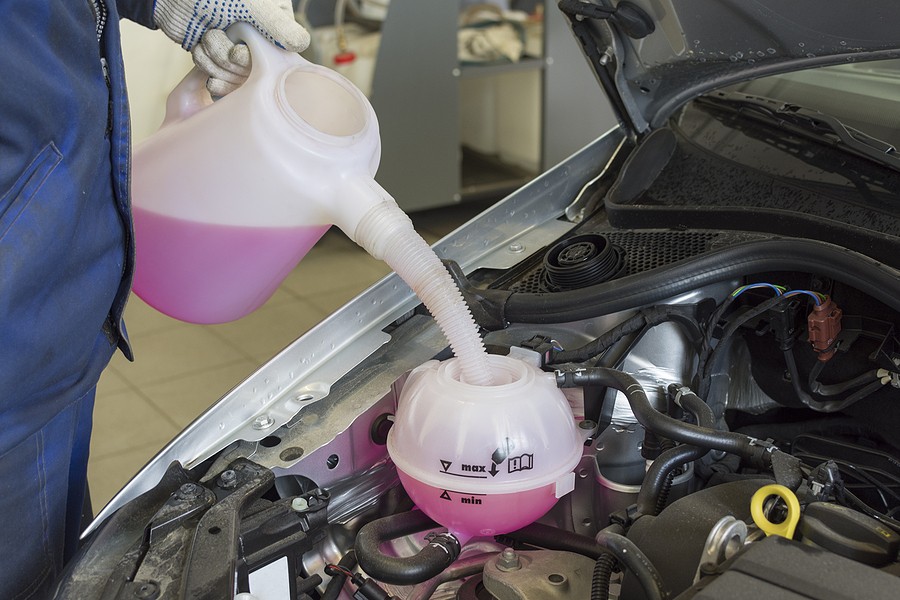If you're dealing with leaking antifreeze coolant, check for the following causes:
- Damaged hoses
- Malfunctioning radiator
- Water pump failure
- Seals failures
- Rust or contaminant
Coolant, or what's known as antifreeze, leak is a very common problem that many drivers complain about. It indicates that the main fluid responsible for cooling down the engine is escaping from the vehicle, which might lead to significant issues, including damaging the entire engine.
Every driver must understand the ins and outs of the leaking antifreeze coolant from your vehicle. Therefore, this article provides you with everything you need to know, from identifying the signs of a leaking antifreeze, determining the main causes, familiarizing yourself with the diagnosis, and understanding the solutions and future preventions.
How do we identify the signs of leaking antifreeze?
Before you move any step further in fixing any coolant leak, you must confirm the issue. Many inexperienced car owners might think their vehicle suffers from an antifreeze leak but end up with another fluid leaking.
Therefore, the first step in understanding any leaking antifreeze coolant is to monitor the true symptoms, which are summarized in the following list:
1. Visible puddles
You're looking for leaking antifreeze coolant, which means you have already observed some puddles of water or fluid leaking underneath the vehicle. However, you must be careful about looking at this fluid because it could be an oil or something else in many instances.
2. Low coolant level
To confirm whether you're dealing with a leaking antifreeze leak coolant, you need to look at the coolant level in the reservoir. Typically, when there are a lot of coolant leaks, you'll see that the coolant level is dropping significantly in the reservoir, and it might be approaching, if not already, the minimum point.
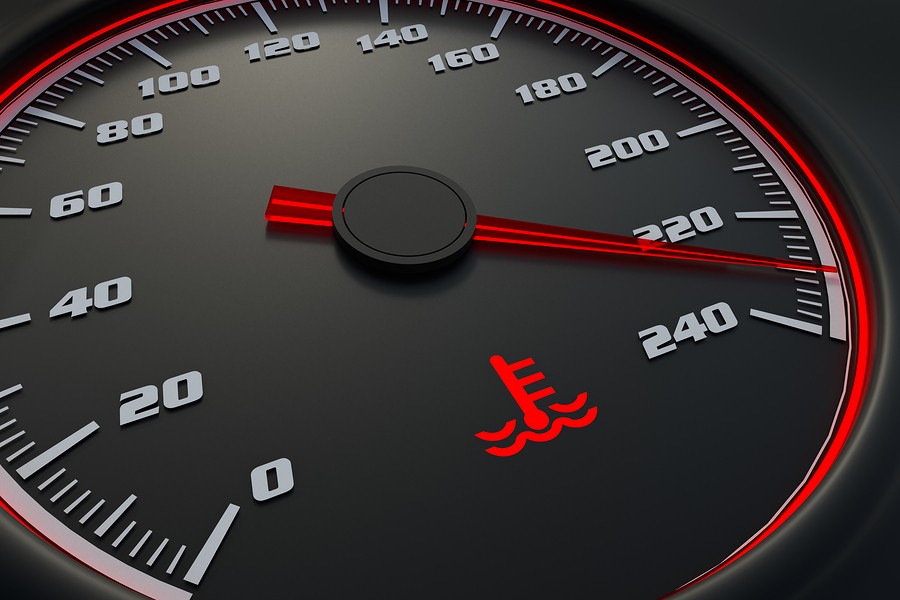
3. Engine overheating
When the quantity drops significantly, the engine will not receive the required cooling, so you'll notice engine overheating. You can read this by looking at the temperature gauge and seeing if it's fluctuating significantly.
4. Strange smell
Typically, a coolant is associated with a sweet smell that's most likely like Maple syrup. In that case, you shouldn't ignore this problem because even if it's not a bad smell, it is linked to an internal significant problem.
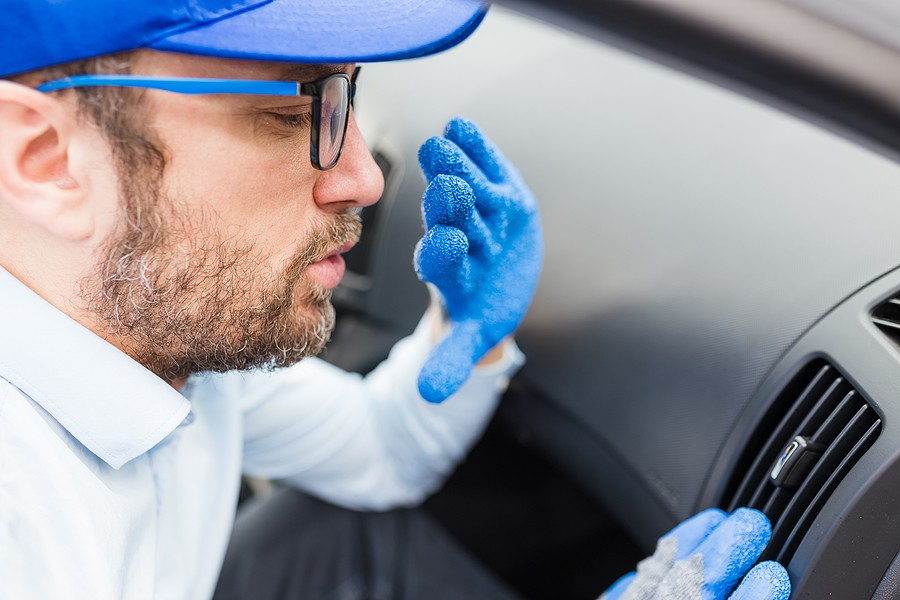
5. Visible exhaust color
Finally, another important symptom that might indicate a leaking antifreeze coolant is when you have a visible exhaust color that is most likely a strong white color. Typically, exhaust smoke should not have a visible color unless you're driving a very old car or you're starting your vehicle in the early morning.
What are the causes of leaking antifreeze coolants?
Now we have a general idea about the main symptoms of a leaking antifreeze coolant; the next step is to understand the main cause because this helps you determine whether you can fix the problem yourself or need to check with your mechanic immediately.
The following list highlights the most important causes for a leaking antifreeze coolant below your car:
1. Damaged hoses
When dealing with a leaking antifreeze coolant, you'll notice that many of the houses could be loose or damaged. If so, your mechanic must replace them immediately before things get more complicated.
2. Radiator issues
In some severe scenarios, you might be dealing with a significant problem related to the radiator. The radiator is a significant component in the cooling system and is not cheap to replace. However, this is your only option if it is causing the issue.

3. Water pump failure
The water pump is another important component in your cooling system responsible for pumping the coolant around the engine. When it fails, it can easily leak antifreeze coolants below your car.
4. Seal failures
In general will, the coolant will not leak unless it finds some weak seals. In that case, your mechanic needs to identify the weak seals and try to fix them before they break down and allow the coolant to leak outside the car.
5. Rust or contaminants
Finally, as the coolant gets older, it might start collecting dust and rust from around the engine, which means many contaminants within the coolant might add pressure to the weak seals and allow coolant to leak outside the car.
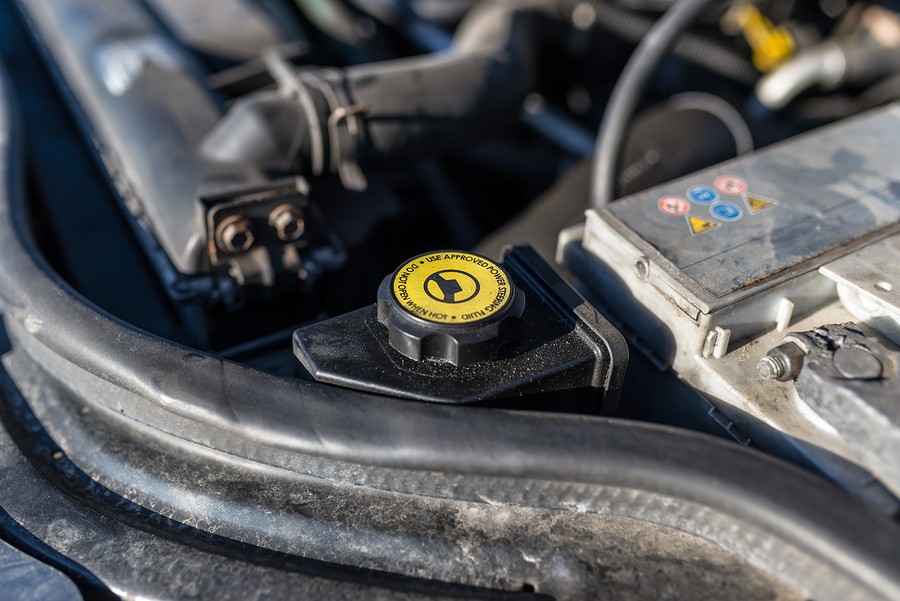
How do you diagnose leaking antifreeze coolant?
Now you have a general idea about the main causes of the leaking antifreeze coolants; the next step is understanding how to diagnose the problem. It is sometimes as simple as performing a visual inspection, but if you have the right mechanical skill sets and the tools, you can even go with more advanced things like the following list:
1. Visual inspection
2. Pressure test
3. UV dye test
4. Cooling system pressure drop
As you might notice, if you are not an experienced mechanic, you can only rely on the visual inspection by looking at any potential signs of dripping fluid below the car. You can also look at the connection and see if any cool escapes between the loose connections.
Even if you're performing a visual inspection, you must be careful when working with any component related to the cooling system. This system is generally extremely hot, and doing it unthinkingly might lead to many risks.
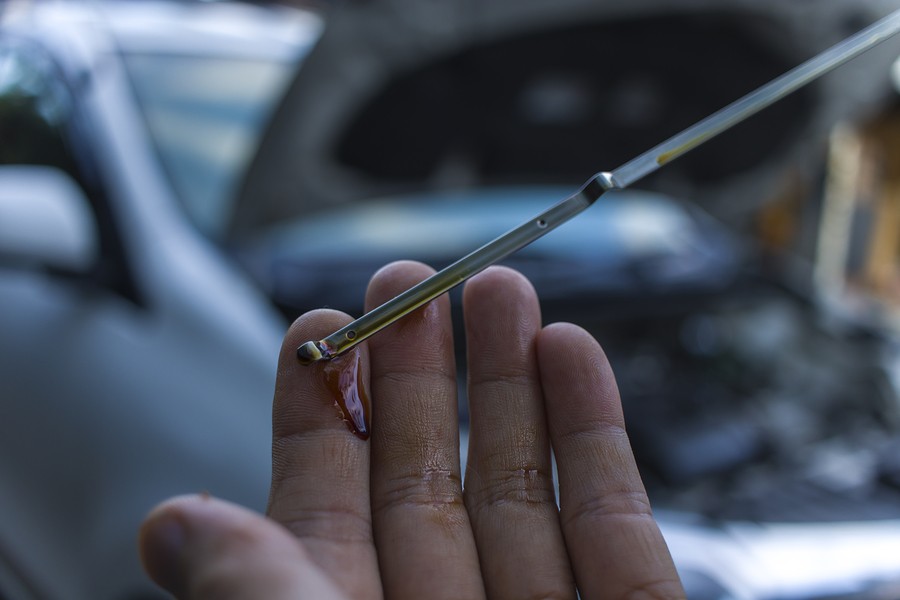
How to repair an antifreeze coolant leak?
If you confirm that you're dealing with a leaking antifreeze coolant, we must fix the problem immediately. Otherwise, it can lead to significant damages that might damage the entire vehicle, costing you a lot of money.
If you confirm the leak is happening of loose connections, you can tighten them yourself without needing your mechanic.
However, if the problem becomes more complicated, you'll need to check with the mechanic and have them inspect these components. For example, if the issue concerns a failing water pump or radiator, your mechanic might decide to fix or replace them if they are beyond repair.
Before you move forward with the repairs, you must do the right math and see if it's worth fixing this car. For example, if costs are piling up and getting close to 75% or more of the value of your vehicle, you might need to sell this car rather than wasting your time and effort.
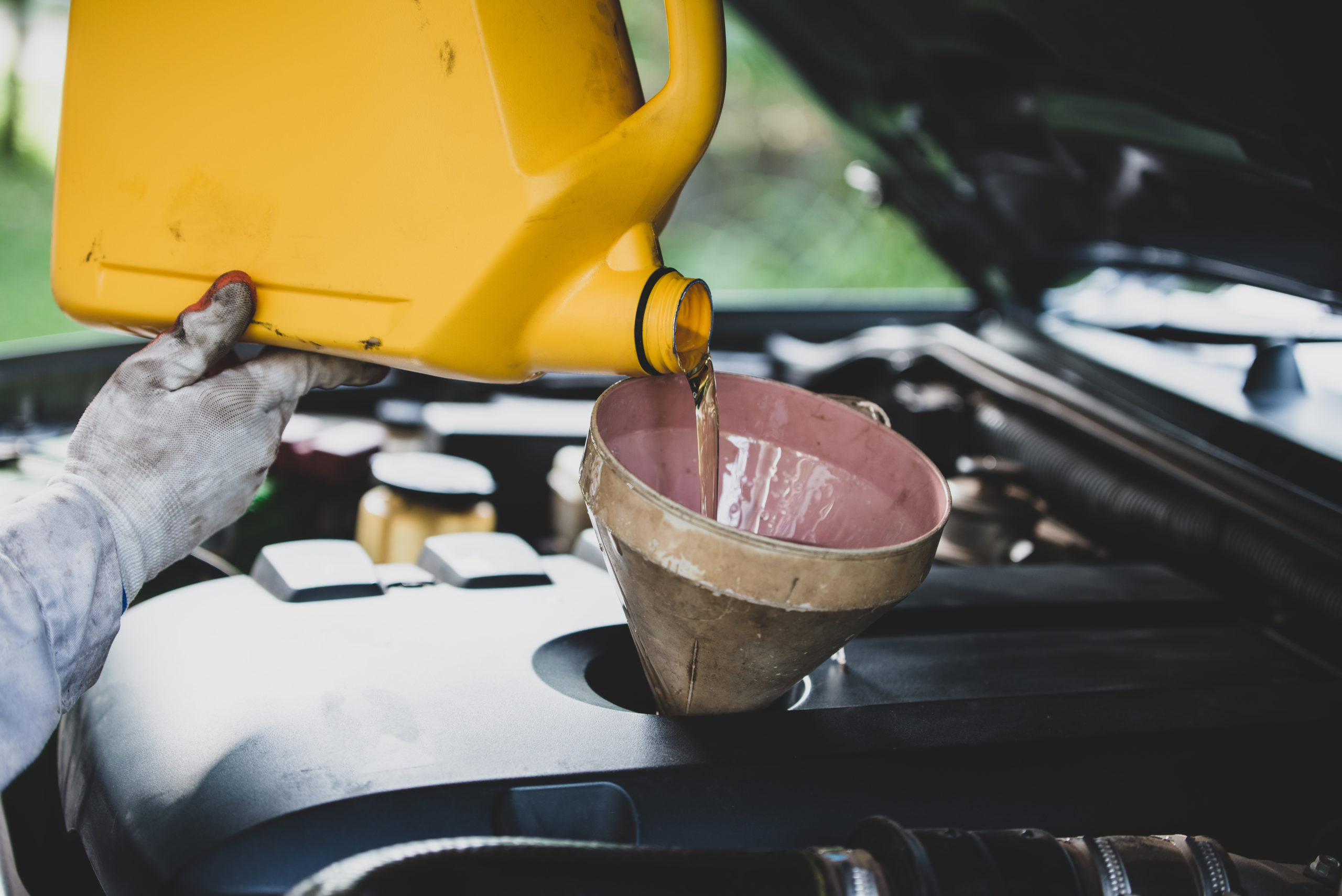
How to prevent antifreeze coolant leaks in the future?
As you might notice, dealing with leaking antifreeze coolant is a big problem, and to avoid this problem from happening in the first place, there are a couple of things that you could do to prevent this problem from happening or at least delay it until the vehicle is damaged or worn out.
The list below provides you with some recommendations by automotive experts that could help you prevent the antifreeze coolant leak in the future:
- Keep up with your regular maintenance
- Flush the coolant when needed
- Choose the right coolant for your car
- To prevent vehicle overheating
The list is just a short list of recommendations by automotive experts, but the biggest one is to keep up with regular maintenance. Every vehicle has a manual that helps you keep it healthy and avoid unnecessary problems.
Your manual should recommend what must be done and how to prevent engine overheating soon. For example, it lets you know what type of coolant you must choose and highlights some situations where you must replace the coolant and how often you must check on it.
You don't want to rely only on the manual, and you have to monitor the behavior of your car. For example, if your car is overheating continuously, you might need to check on the colon before your manual recommends it.
That's why most automotive experts typically recommend conversing with the mechanic and having him look at your car every time you perform an oil change, for example, or any regular means that's going to happen before you flush the coolant.
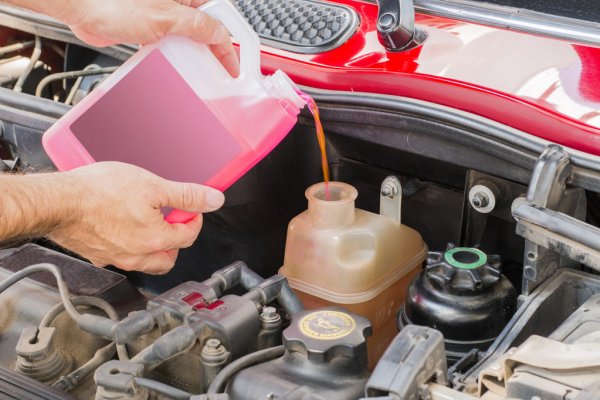
Leaking antifreeze coolant: Conclusion
When your car is leaking antifreeze or coolant, this is not a simple situation and might indicate a significant issue happening in your car. Therefore, you must never ignore the problem and try to fix it immediately.
This article serves as a comprehensive guide on leaking antifreeze coolants. It highlighted the main symptoms, causes, solutions, and potential repairs and preventions.
Whenever you deal with this problem, you must consult your mechanic immediately before things get out of hand.
If you're interested in similar posts, we highly encourage you to visit our blog by clicking here!

